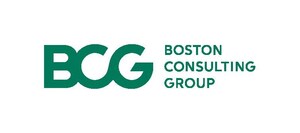
COPENHAGEN, Denmark, May 7, 2019 /PRNewswire/ -- Today, Global Fashion Agenda (GFA), Boston Consulting Group (BCG) and Sustainable Apparel Coalition (SAC) released the 2019 update of Pulse of the Fashion Industry, an annual assessment of the fashion industry's environmental and social performance in terms of the Pulse Score.*
The 2019 update reveals that the pace of sustainability progress in the fashion industry has slowed by a third in the past year and is not moving fast enough to counterbalance the harmful impact of the fashion industry's rapid growth. Unless the current trend of the Pulse Score improves, fashion will continue to be a net contributor to climate change, increasing the risk that the Paris Agreement's objective of keeping global warming below 1.5 degrees Celsius during the remainder of this century will not be achieved.
The Pulse Score increased by four points in 2019, from 38 to 42 (out of 100). In 2018, it increased by six points, so the speed of measurable progress in the past year has decreased by a third.
The Pulse Score shows change is not currently fast enough to combat industry growth
As detailed in the 2019 findings, the pace of positive change does not match the projected growth of the fashion industry. Projections suggest that by 2030 the global apparel and footwear industry will have grown by 81%, to 102 million tons, exerting an unprecedented strain on planetary resources. If the industry's Pulse Score—a metric of sustainability—remains on its current trajectory, the gap between industry output and Pulse Score will continue to widen, and the harmful consequences of increased production will become even more challenging to overcome.
The growth of the Pulse Score has decreased by one-third
The measurement suggests that the fashion industry has made some progress toward better social and environmental performance over the past year, but at a slower rate than in previous years. The improvement was due mainly to rapid progress among brands that are in the early stages of their sustainability journey and have put in place foundational measures in strategy, governance and target setting. Meanwhile, progress, as reflected in the Pulse Score, has slowed among larger companies that must figure out how to scale disruptive business models and harness innovative technologies. However, some larger companies have implemented promising sustainable practices that the Pulse Score does not currently measure, so their impact is not included in the score.
New survey reveals that consumers are increasingly concerned about sustainability, but brands cannot wait for consumers to demand it
Awareness of environmental and social practices is growing among consumers. This year's update features a detailed consumer insights survey drawn from an extensive representative consumer survey in five countries. More than a third of surveyed consumers reported they have switched from their preferred brand to another for reasons related to responsible practices. However, the 2019 data revealed that sustainability is still far from being a key consideration in purchasing decisions. Therefore, it is up to fashion leaders to drive large-scale impact and influence consumer perceptions.
How to speed up the pace
According to the 2019 update, solving the challenges of scale and developing disruptive technologies will lead to new ways of doing business. Governments and businesses need to collaborate closely, too, and investors should urge their investees to improve their social and environmental practices. Fashion players that have all the core priorities in place that are necessary to take a bold stand should champion these efforts toward common standards and work with others on transformational priorities.
Morten Lehmann, chief sustainability officer at Global Fashion Agenda, says: "These latest findings emphasize the dire need for the whole industry to join the race and accelerate change now. Scaling existing solutions will depend on leadership from brands. However, some transformational changes will take cooperation among policy makers and stakeholders across the entire value chain."
Sebastian Boger, a partner at BCG, explains: "It is very encouraging to finally see changing momentum in consumer sentiment. Our representative consumer research shows sustainability is shifting from a secondary consideration to a primary decision driver: Over a third of surveyed consumers have already actively switched from their preferred brand to another because it credibly stands for positive environmental and/or social practices."
Amina Razvi, interim executive director at Sustainable Apparel Coalition states: "To achieve the transformational change required, we must collaborate and make meaningful commitments to end our industry's damaging practices. We need to scale our efforts to assess impacts through a common framework and increase improvements in sustainability performance globally."
View the core findings of the Pulse of the Fashion Industry 2019 Update.
Media Contacts:
Alice Roberta Taylor, PR Manager, Global Fashion Agenda
+45 2894 0827, [email protected]
Eric Gregoire, Global Media Relations Senior Manager, BCG
+1 617 850 3783, [email protected]
* The Pulse Score is drawn from the Sustainable Apparel Coalition's proprietary Higg Index and is complemented by expert interviews, a Pulse survey and an expert sounding board. It represents a global and holistic baseline of sustainability management, target setting and implementation of sustainability initiatives within the fashion sector.
About Global Fashion Agenda
Global Fashion Agenda (GFA) is the foremost leadership forum for industry collaboration on sustainability in fashion. As a thought leadership and advocacy organisation focusing on industry collaboration and public-private cooperation, GFA is on a mission to make sustainability fashionable. The organisation guides and supports industry leaders in changing the way we produce, market and consume fashion, for a world beyond next season. In partnership with its Strategic Partners, currently counting the industry leaders ASOS, BESTSELLER, H&M group, Kering, Li & Fung, Nike, PVH Corp., Sustainable Apparel Coalition, and Target, GFA spearheads the fashion industry's journey toward a more sustainable future. A non-profit organisation, GFA has organised and hosted Copenhagen Fashion Summit, the world's leading business event on sustainability in fashion, since 2009. GFA also publishes the annual Pulse of the Fashion Industry report, in collaboration with Boston Consulting Group (BCG), and the annual CEO Agenda. For more information, visit globalfashionagenda.com.
About Boston Consulting Group
Boston Consulting Group (BCG) is a global management consulting firm and the world's leading advisor on business strategy. We partner with clients from the private, public, and not-for-profit sectors in all regions to identify their highest-value opportunities, address their most critical challenges, and transform their enterprises. Our customized approach combines deep insight into the dynamics of companies and markets with close collaboration at all levels of the client organization. This ensures that our clients achieve sustainable competitive advantage, build more capable organizations, and secure lasting results. Founded in 1963, BCG is a private company with offices in more than 90 cities in over 50 countries. For more information, visit bcg.com.
About Sustainable Apparel Coalition
The Sustainable Apparel Coalition (SAC) is an industry-wide group of more than 240 leading apparel, footwear, and textile, brands, retailers, suppliers, service providers, trade associations, nonprofits, NGOs, and academic institutions working to reduce the environmental and social impacts of products around the world. Through multi-stakeholder engagement, the SAC seeks to lead the industry toward a shared vision of sustainability built upon a common approach for measuring and evaluating apparel, footwear, and textile product sustainability performance that spotlights priorities for action and opportunities for technological innovation. The SAC was incorporated as a 501c(6) nonprofit organization and launched the groundbreaking Higg Index suite of tools in 2011. For more information, visit apparelcoalition.org.
SOURCE Boston Consulting Group (BCG)







Share this article